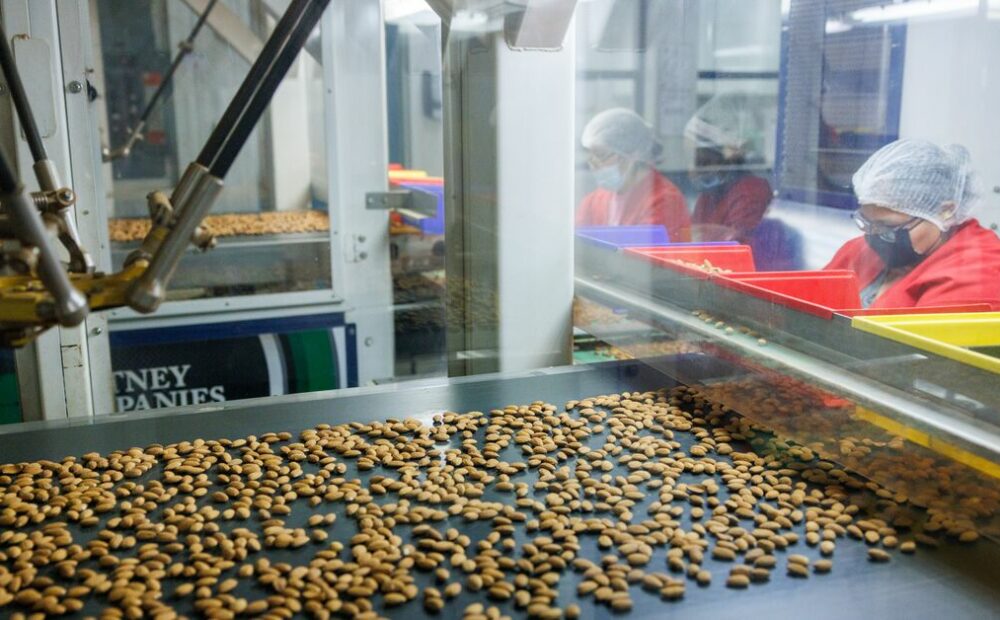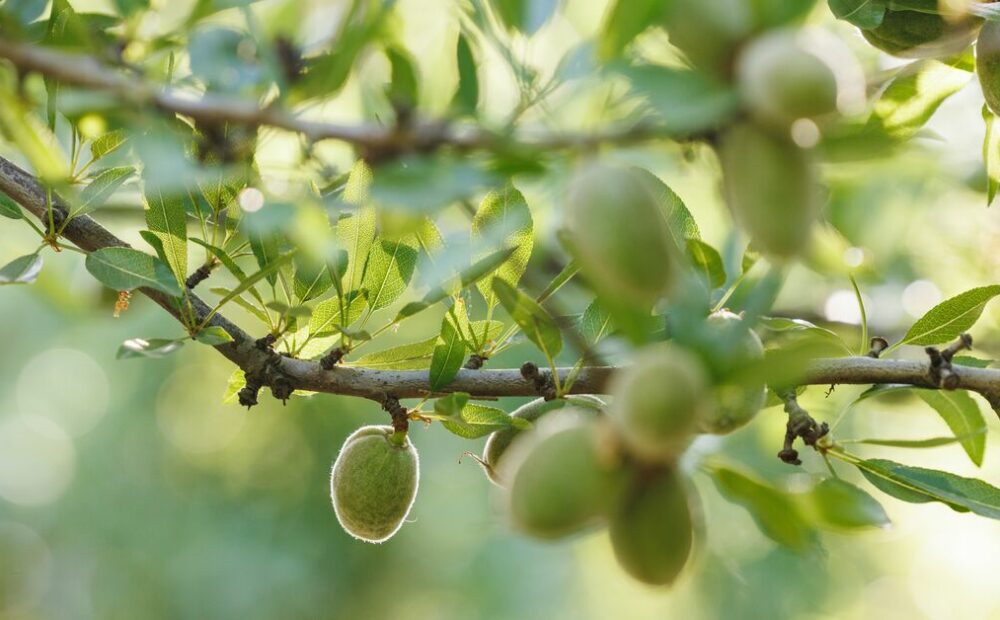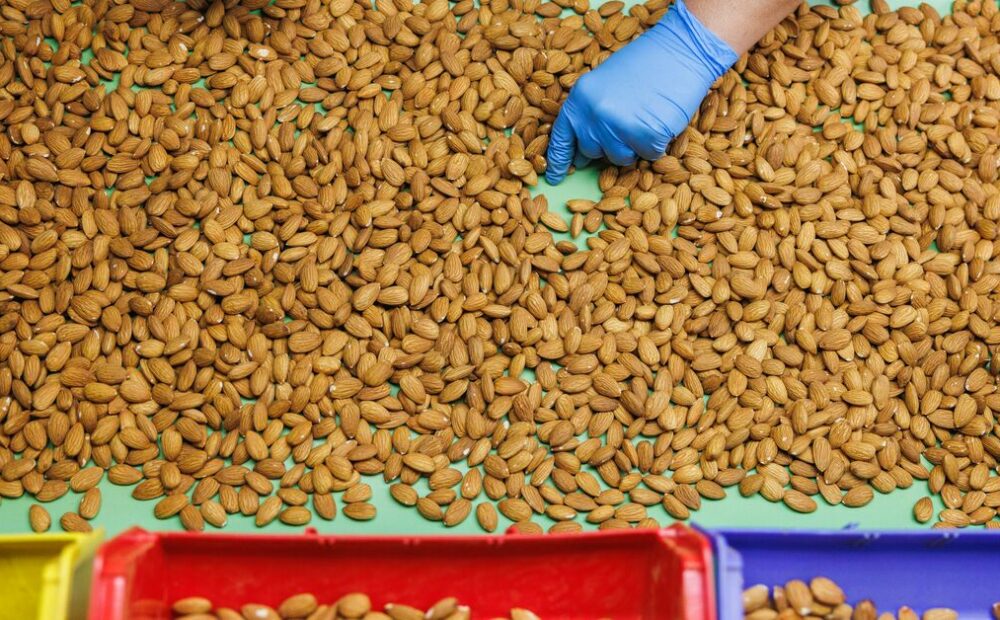The journey of an almond from a sunny California orchard to a grocery store shelf often begins at a family-owned operation like Travaille and Phippen in the Central Valley.
Bud Travaille, Dave Phippen and Scott Phippen took on their family’s almond farming and hulling operation in 1980. Over the next four decades, the partners added a sheller, solar panels and almond-processing robots that have boosted efficiency at the operation, which has been owned by the family since 1921.
Today, Travaille and Phippen has 60 year-round staff and grows almonds on 1,500 acres in San Joaquin County. Each year, the vertically integrated business produces about 36 million pounds of almonds, in addition to processing and shipping nuts around the world.
What started as a family farm has evolved into a full-service almond enterprise, with the addition of hulling, shelling and processing facilities. Scott said he and his partners knew they had to adapt the family business in order to stay competitive.
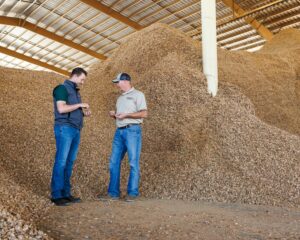 “Our parents always had a huller, but never did shelling,” said CEO Scott Phippen. “We adapted into that process because that was the future. We needed to vertically integrate into the business and so we became processors, which means that we take the kernels from the sheller and further process them into markets primarily for wholesale.”
“Our parents always had a huller, but never did shelling,” said CEO Scott Phippen. “We adapted into that process because that was the future. We needed to vertically integrate into the business and so we became processors, which means that we take the kernels from the sheller and further process them into markets primarily for wholesale.”
Almonds are one of the most popular snacks around – and for good reason. Each nut packs a nutritional punch, with loads of protein, fiber, vitamin E, calcium, copper, magnesium and riboflavin. U.S. consumers are now eating about six times as many almonds each year as they did in 1970, according to USDA research.
As the tree nut has grown more popular, so has the business of growing, processing and shipping it. Almonds are California’s top agricultural export, with about two-thirds of the state’s almond crop destined for export markets. In 2022, U.S. almond exports to the world totaled $4.5 billion. Even with recent shipping challenges and higher costs to produce the nuts, many almond operations remain profitable in California.
‘We want ours to be the best’
A shopper won’t find Travaille and Phippen brand almonds at the grocery store. But many of the companies that do stock almonds on grocery store shelves have sourced nuts from this operation in Ripon, California.
Drawing on decades of experience and a deep understanding of the almond hulling and shelling process, Scott and his team are able to quickly spot any issues and ensure they are delivering only top-quality almonds.
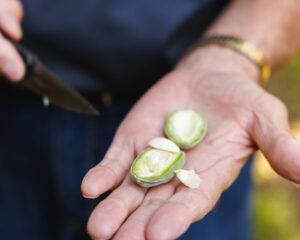 “The real beginning is out on the farm,” said Scott. “The grower has to do his job, then the sheller needs to do the next step by not beating up the almonds. We watch the huller-sheller extremely closely. We know how it operates, we understand the machinery and its function.”
“The real beginning is out on the farm,” said Scott. “The grower has to do his job, then the sheller needs to do the next step by not beating up the almonds. We watch the huller-sheller extremely closely. We know how it operates, we understand the machinery and its function.”
Shelling can be a key quality differentiator for the company’s almonds, many of which are destined for export markets in England, Germany, Japan and Dubai, among others.
Nick Gatzman is a member of the family’s fourth generation and a partner at Travaille and Phippen. He said the operation has stayed competitive by bringing on new technology and automation, reducing waste and establishing strong relationships with almond growers who deliver a superior product.
“We are looking to expand our customer base, not only overseas where we sell our product, but also our base of our growers that provide us with the product,” said Nick. “Our goal is to create a high-quality product. A lot of people have almonds. We want ours to be the best.”
Growing a zero-waste almond
Processing an almond means more than simply breaking the shell and removing a kernel. Travaille and Phippen turns every part of the almond into a useable product, converting what could be wasted into almond oil and processing the shells for dairy feed.
“There are three products that come out of this building: brown skin almond kernels, almond shell and almond oil,” said Dave Phippen. “All of the byproducts are utilized in this process, and we call ourselves a zero-waste industry. Sometimes when people are critical about almond growing, that it uses too much water, we like to point out that the water didn’t just grow an almond kernel.”
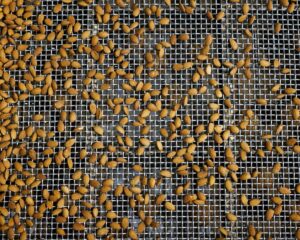 In 2009, Travaille and Phippen began to install more sustainable infrastructure, including an acre of solar panels on the farm. About a decade later, the family-run operation upgraded the solar panels, which have led to energy-cost savings and a lower carbon footprint.
In 2009, Travaille and Phippen began to install more sustainable infrastructure, including an acre of solar panels on the farm. About a decade later, the family-run operation upgraded the solar panels, which have led to energy-cost savings and a lower carbon footprint.
By adapting the business to be more vertically integrated, process almonds faster with both their trained employees and robots, and run partially on renewable energy sources, Travaille and Phippen has carved out a successful niche in the almond business.
Over the years, Dave said that he and his partners have built a strong relationship with American AgCredit, a leading member of the Farm Credit System. Travaille and Phippen has brought in American AgCredit for financial expertise as they built new facilities and upgraded equipment for harvesting, sorting and processing almonds.
“I’m pleased that [American AgCredit] is always there for us,” said Dave. “They seem to always be willing to finance our operation. And as my brother and I step back in the operation, I hope we’ve shown the next partners that there’s a real opportunity in financing in a cooperative way.”

